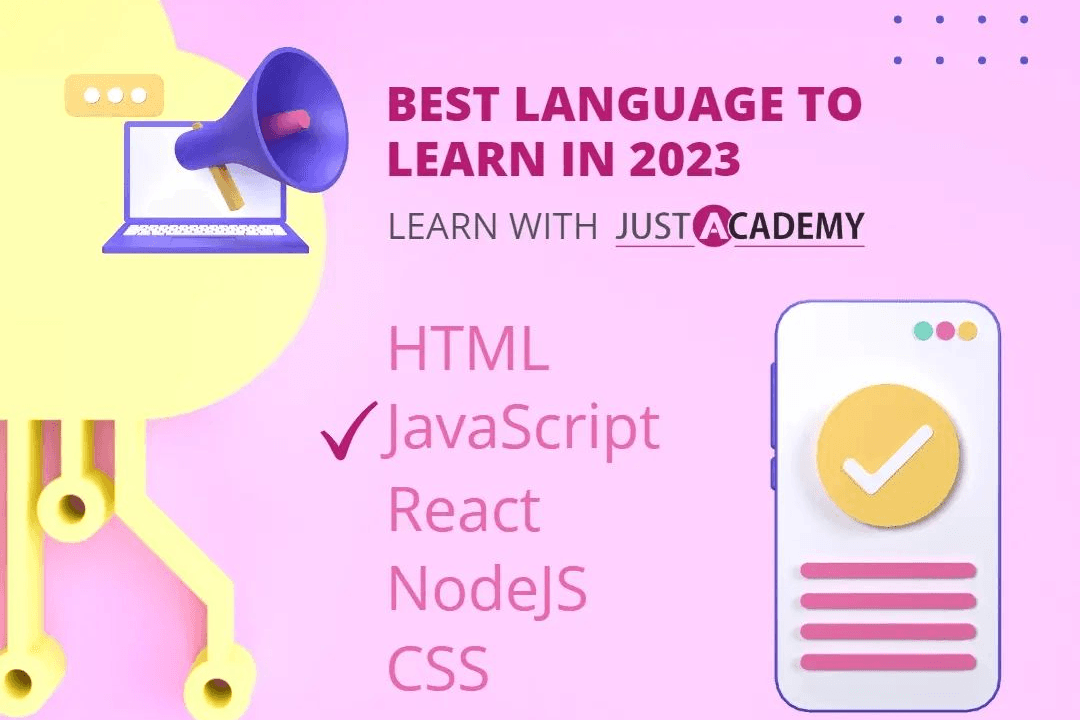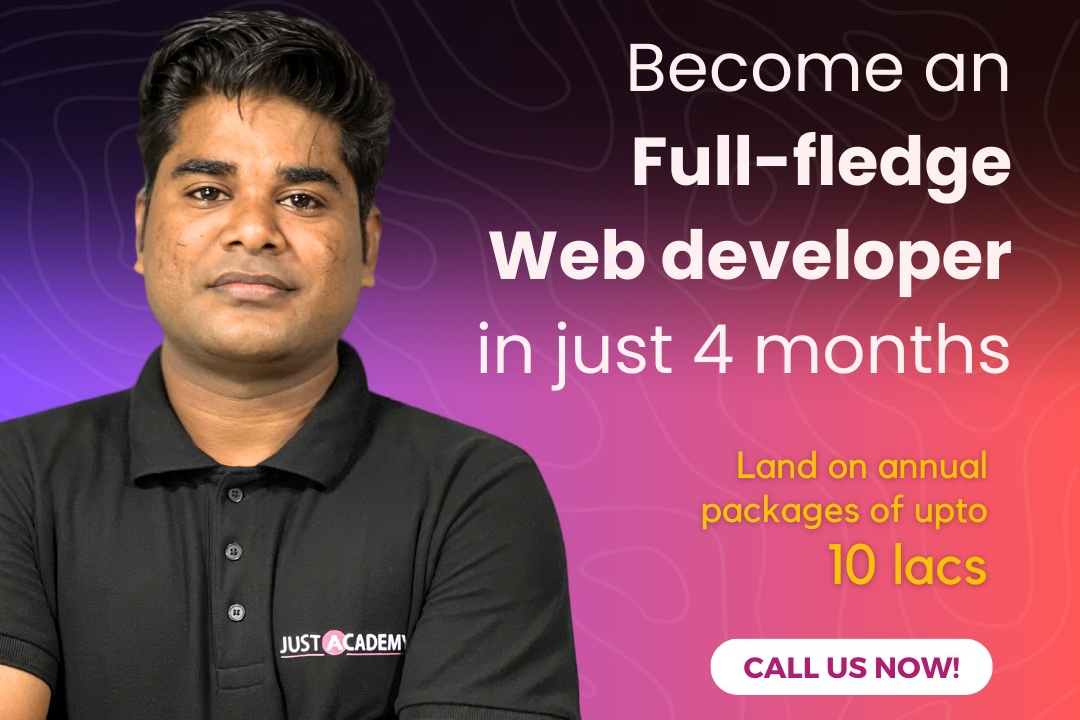Laravel Interview Questions Tutorialspoint
The Laravel interview questions repository from TutorialsPoint is a comprehensive collection designe
Laravel Interview Questions Tutorialspoint
The Laravel interview questions guide from TutorialsPoint serves as an invaluable resource for developers preparing for job interviews that focus on the Laravel framework. It compiles a wide range of questions that span fundamental concepts and advanced topics, including routing, Eloquent ORM, security, and more. This guide not only helps candidates refresh their knowledge but also enables them to understand practical applications of Laravel, making it easier to demonstrate their expertise during interviews. By providing insights into both theoretical and real-world scenarios, this comprehensive resource equips developers with the confidence and skills necessary to stand out in the competitive job market.
To Download Our Brochure: https://www.justacademy.co/download-brochure-for-free
Message us for more information: +91 9987184296
The Laravel interview questions guide from TutorialsPoint serves as an invaluable resource for developers preparing for job interviews that focus on the Laravel framework. It compiles a wide range of questions that span fundamental concepts and advanced topics, including routing, Eloquent ORM, security, and more. This guide not only helps candidates refresh their knowledge but also enables them to understand practical applications of Laravel, making it easier to demonstrate their expertise during interviews. By providing insights into both theoretical and real world scenarios, this comprehensive resource equips developers with the confidence and skills necessary to stand out in the competitive job market.
Course Overview
The “Laravel Interview Questions Tutorialspoint” course is designed to equip learners with the knowledge and confidence needed to excel in job interviews focused on Laravel, a popular PHP framework. Through this course, participants will explore a wide array of interview questions that cover both fundamental and advanced concepts, such as routing, Eloquent ORM, middleware, and security practices, all essential for demonstrating proficiency in Laravel. Additionally, the course emphasizes practical application by incorporating real-world scenarios that learners might encounter in the workplace. By the end of the course, participants will be well-prepared to articulate their understanding of Laravel and showcase their skills effectively, enhancing their chances of success in securing a desirable position in the field of web development.
Course Description
The “Laravel Interview Questions Tutorialspoint” course provides an in-depth exploration of commonly asked interview questions centered around Laravel, a widely-used PHP framework. Designed for aspiring developers, this course covers essential topics such as routing, Eloquent ORM, middleware, and security practices. Through a combination of theoretical knowledge and practical real-world projects, participants will gain a comprehensive understanding of Laravel's features and best practices. By engaging with various scenarios and solutions, learners will enhance their problem-solving skills and boost their confidence, preparing them effectively for job interviews in the competitive field of web development. Join us to advance your career with the expertise needed to impress potential employers.
Key Features
1 - Comprehensive Tool Coverage: Provides hands-on training with a range of industry-standard testing tools, including Selenium, JIRA, LoadRunner, and TestRail.
2) Practical Exercises: Features real-world exercises and case studies to apply tools in various testing scenarios.
3) Interactive Learning: Includes interactive sessions with industry experts for personalized feedback and guidance.
4) Detailed Tutorials: Offers extensive tutorials and documentation on tool functionalities and best practices.
5) Advanced Techniques: Covers both fundamental and advanced techniques for using testing tools effectively.
6) Data Visualization: Integrates tools for visualizing test metrics and results, enhancing data interpretation and decision-making.
7) Tool Integration: Teaches how to integrate testing tools into the software development lifecycle for streamlined workflows.
8) Project-Based Learning: Focuses on project-based learning to build practical skills and create a portfolio of completed tasks.
9) Career Support: Provides resources and support for applying learned skills to real-world job scenarios, including resume building and interview preparation.
10) Up-to-Date Content: Ensures that course materials reflect the latest industry standards and tool updates.
Benefits of taking our course
Functional Tools
1 - Laravel Framework: The core tool of this training program is the Laravel framework itself. Laravel is a powerful PHP web application framework designed for ease of use in building robust applications. It offers elegant syntax and tools, making development faster and more efficient. Students will learn how to leverage Laravel's features, such as Eloquent ORM for database management, routing for URL handling, and blade templating for dynamic content rendering. Understanding the framework is essential for mastering interview questions related to Laravel as well as for practical application in real world projects.
2) Composer: Composer is a dependency management tool that Laravel relies on for installing and managing libraries and dependencies. Through the training program, students will use Composer to add packages and manage project dependencies efficiently. This tool simplifies the process of keeping libraries updated and ensures that all required components are available for the Laravel application. Learning to work with Composer is crucial for any Laravel developer and helps in understanding how to handle project setups effectively.
3) PHP: As Laravel is built on PHP, this programming language is a fundamental tool that students will engage with during the training. A solid understanding of PHP is crucial for Laravel development. The course will cover essential PHP concepts such as object oriented programming, functions, and error handling, which are frequently encountered in interview questions. This knowledge will lay the groundwork for building Laravel applications and preparing students for technical interviews that focus on PHP skills.
4) MySQL: MySQL is a widely used relational database management system compatible with Laravel. The training will include hands on experience with MySQL, guiding students on how to design databases, execute queries, and integrate MySQL with Laravel’s Eloquent ORM. Proficiency in database interactions is key for developers, and students will gain insights into SQL query optimization and database performance. Understanding MySQL will help answer common interview questions concerning data operations and management.
5) Git: Git is a version control system that is pivotal in modern software development practices. In this program, students will learn to use Git for tracking changes in their projects, collaborating with other developers, and managing project versions efficiently. Knowledge of Git is essential for developing teamwork skills and is frequently tested in tech interviews, as employers look for candidates who can work in collaborative environments. The ability to use Git effectively will enhance students’ employability and preparedness for the tech workforce.
6) Postman: Postman is an essential tool for API testing, and the Laravel framework often involves creating RESTful APIs. Students will utilize Postman to test API endpoints and understand the different types of requests such as GET, POST, PUT, and DELETE. The training will emphasize best practices in API development and how to ensure that the APIs built in Laravel are functioning correctly. Familiarity with Postman not only helps in real time project execution but also prepares students to handle related interview questions about RESTful services and API management effectively.
7) RESTful API Development: Understanding REST (Representational State Transfer) is crucial for modern web development, and Laravel makes it straightforward to create RESTful APIs. In this training, students will explore how to build, test, and document RESTful services using Laravel. They will learn about routing, middleware, and data serialization, which are foundational for creating scalable applications. Mastering RESTful principles will enable students to answer interview questions related to API structure, implementation, and best practices.
8) Authentication and Authorization: Securing applications is paramount, and Laravel provides built in mechanisms for authentication and authorization. The training will cover various authentication techniques, including Laravel's built in user authentication system and Laravel Passport for API authentication. Students will learn how to implement user roles and permissions to control access within their applications, preparing them for interviews that delve into security best practices and role management in web development.
9) Testing with PHPUnit: Writing tests is an essential part of application development. The training will introduce students to PHPUnit, the testing framework integrated with Laravel. Students will learn how to write unit tests and feature tests for their applications, ensuring that their code is robust and free of bugs. Familiarity with automated testing methodologies is increasingly sought after in technical interviews, as it showcases a developer's commitment to code quality and reliability.
10) Front end Integration: While Laravel primarily focuses on back end development, it also offers tools to work with front end frameworks. During the training, students will learn how to integrate Vue.js or React with Laravel to create dynamic, single page applications (SPAs). Additionally, they will explore how to use Laravel Mix for asset compilation and management. This knowledge is vital for front end and full stack questions in interviews, as employers seek developers who can bridge both front and back end technologies.
11 - Caching and Performance Optimization: Performance is key to any successful application. The course will cover caching techniques in Laravel, including file and database caching, as well as using Redis or Memcached. Students will learn how to enhance application performance, manage session data, and reduce response times. Understanding caching mechanisms will help students address performance related questions in technical interviews and improve their applications' efficiency.
12) Deployment and DevOps Practices: Knowledge of deployment strategies and DevOps practices is increasingly important in the software development lifecycle. The training will include discussions on deploying Laravel applications on popular cloud platforms like AWS, DigitalOcean, or Heroku. Students will also explore continuous integration and deployment (CI/CD) pipelines, understanding how to automate testing and deployment processes. Proficiency in these areas can set candidates apart in job interviews where operational knowledge is a plus.
13) Debugging and Error Handling: Efficient debugging is critical for any developer. The training will cover how Laravel simplifies debugging with features like exception handling and logging. Students will learn to write custom error pages and manage error reporting. This knowledge equips them to tackle common debugging questions in interviews and demonstrates their ability to resolve issues efficiently during the development process.
14) Installing and Utilizing Laravel Packages: Laravel's ecosystem comprises a vast number of packages that extend its functionalities. The training will introduce students to popular packages like Spatie for role management, Intervention Image for image processing, and Laravel Telescope for debugging. Understanding how to find and implement these packages effectively will enhance students’ skills and provide insights into resource management during job interviews.
15) Microservices Architecture: As systems become more complex, understanding microservices architecture is beneficial. In this program, students will learn how Laravel can be used within a microservices architecture, including how to develop and communicate between services. This knowledge is increasingly relevant in modern development environments and can help students tackle questions related to software architecture patterns during interviews.
16) Design Patterns in Laravel: Familiarity with design patterns is important for writing clean and maintainable code. The course will discuss common design patterns used within Laravel applications, such as MVC (Model View Controller), Repository Pattern, and Service Layer Pattern. Understanding these patterns allows students to structure their applications better and will be beneficial during technical discussions in interviews.
These additional points enrich the curriculum and provide comprehensive coverage of the essential skills and tools developers need to excel in the Laravel ecosystem, preparing students thoroughly for both real time projects and technical interviews.
Browse our course links : https://www.justacademy.co/all-courses
To Join our FREE DEMO Session: Click Here
This information is sourced from JustAcademy
Contact Info:
Roshan Chaturvedi
Message us on Whatsapp: +91 9987184296
Email id: info@justacademy.co












